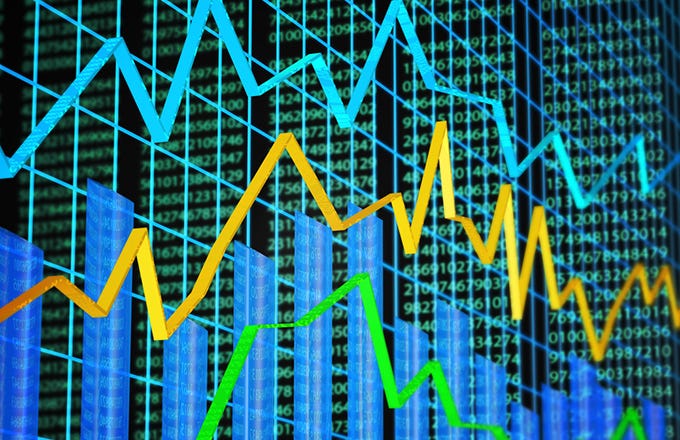By Stephen Simpson
The field of macroeconomics is organized into many different schools of thought, with differing views on how the markets and their participants operate.
Classical
Classical economists hold that prices, wages and rates are flexible and markets always clear. As there is no unemployment, growth depends upon the supply of production factors. (Other economists built on Smith's work to solidify classical economic theory. For more, see Adam Smith: The Father Of Economics.)
Keynesian
Keynesian economics was largely founded on the basis of the works of John Maynard Keynes. Keynesians focus on aggregate demand as the principal factor in issues like unemployment and the business cycle. Keynesian economists believe that the business cycle can be managed by active government intervention through fiscal policy (spending more in recessions to stimulate demand) and monetary policy (stimulating demand with lower rates). Keynesian economists also believe that there are certain rigidities in the system, particularly "sticky" wages and prices that prevent the proper clearing of supply and demand.
Monetarist
The Monetarist school is largely credited to the works of Milton Friedman. Monetarist economists believe that the role of government is to control inflation by controlling the money supply. Monetarists believe that markets are typically clear and that participants have rational expectations. Monetarists reject the Keynesian notion that governments can "manage" demand and that attempts to do so are destabilizing and likely to lead to inflation. (Learn how Milton Friedman's monetarist views shaped economic policy after World War II. For more, see Monetarism: Printing Money To Curb Inflation.)
New Keynesian
The New Keynesian school attempts to add microeconomic foundations to traditional Keynesian economic theories. While New Keynesians do accept that households and firms operate on the basis of rational expectations, they still maintain that there are a variety of market failures, including sticky prices and wages. Because of this "stickiness", the government can improve macroeconomic conditions through fiscal and monetary policy.
Neoclassical
Neoclassical economics assumes that people have rational expectations and strive to maximize their utility. This school presumes that people act independently on the basis of all the information they can attain. The idea of marginalism and maximizing marginal utility is attributed to the neoclassical school, as well as the notion that economic agents act on the basis of rational expectations. Since neoclassical economists believe the market is always in equilibrium, macroeconomics focuses on the growth of supply factors and the influence of money supply on price levels.
New Classical
The New Classical school is built largely on the Neoclassical school. The New Classical school emphasizes the importance of microeconomics and models based on that behavior. New Classical economists assume that all agents try to maximize their utility and have rational expectations. They also believe that the market clears at all times. New Classical economists believe that unemployment is largely voluntary and that discretionary fiscal policy is destabilizing, while inflation can be controlled with monetary policy.
Austrian
The Austrian school is an older school of economics that is seeing some resurgence in popularity. Austrian school economists believe that human behavior is too idiosyncratic to model accurately with mathematics and that minimal government intervention is best. The Austrian school has contributed useful theories and explanations on the business cycle, implications of capital intensity, and the importance of time and opportunity costs in determining consumption and value. (For related reading, see The Austrian School Of Economics.)
Macroeconomics: Microeconomics Foundation
The field of macroeconomics is organized into many different schools of thought, with differing views on how the markets and their participants operate.
Classical
Classical economists hold that prices, wages and rates are flexible and markets always clear. As there is no unemployment, growth depends upon the supply of production factors. (Other economists built on Smith's work to solidify classical economic theory. For more, see Adam Smith: The Father Of Economics.)
Keynesian
Keynesian economics was largely founded on the basis of the works of John Maynard Keynes. Keynesians focus on aggregate demand as the principal factor in issues like unemployment and the business cycle. Keynesian economists believe that the business cycle can be managed by active government intervention through fiscal policy (spending more in recessions to stimulate demand) and monetary policy (stimulating demand with lower rates). Keynesian economists also believe that there are certain rigidities in the system, particularly "sticky" wages and prices that prevent the proper clearing of supply and demand.
Monetarist
The Monetarist school is largely credited to the works of Milton Friedman. Monetarist economists believe that the role of government is to control inflation by controlling the money supply. Monetarists believe that markets are typically clear and that participants have rational expectations. Monetarists reject the Keynesian notion that governments can "manage" demand and that attempts to do so are destabilizing and likely to lead to inflation. (Learn how Milton Friedman's monetarist views shaped economic policy after World War II. For more, see Monetarism: Printing Money To Curb Inflation.)
New Keynesian
The New Keynesian school attempts to add microeconomic foundations to traditional Keynesian economic theories. While New Keynesians do accept that households and firms operate on the basis of rational expectations, they still maintain that there are a variety of market failures, including sticky prices and wages. Because of this "stickiness", the government can improve macroeconomic conditions through fiscal and monetary policy.
Neoclassical
Neoclassical economics assumes that people have rational expectations and strive to maximize their utility. This school presumes that people act independently on the basis of all the information they can attain. The idea of marginalism and maximizing marginal utility is attributed to the neoclassical school, as well as the notion that economic agents act on the basis of rational expectations. Since neoclassical economists believe the market is always in equilibrium, macroeconomics focuses on the growth of supply factors and the influence of money supply on price levels.
New Classical
The New Classical school is built largely on the Neoclassical school. The New Classical school emphasizes the importance of microeconomics and models based on that behavior. New Classical economists assume that all agents try to maximize their utility and have rational expectations. They also believe that the market clears at all times. New Classical economists believe that unemployment is largely voluntary and that discretionary fiscal policy is destabilizing, while inflation can be controlled with monetary policy.
Austrian
The Austrian school is an older school of economics that is seeing some resurgence in popularity. Austrian school economists believe that human behavior is too idiosyncratic to model accurately with mathematics and that minimal government intervention is best. The Austrian school has contributed useful theories and explanations on the business cycle, implications of capital intensity, and the importance of time and opportunity costs in determining consumption and value. (For related reading, see The Austrian School Of Economics.)
Macroeconomics: Microeconomics Foundation
Related Articles
-
 Insights
InsightsThe Austrian School of Economics
If you think economists are only concerned with numbers, check out the Austrian school, which thinks more like economic philosophers. -
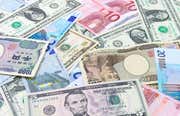 Investing
InvestingCentral Bankers' Role in Keynesian Economics
Learn about the role of monetary policy in Keynesian economics, and examine how central banks impacted aggregate demand in the aftermath of the 2008 crisis. -
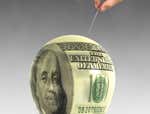 Insights
InsightsWhat Causes Bubbles?
A look at how asset bubbles are formed according to different schools of thought. -
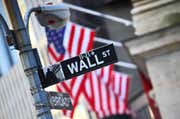 Insights
InsightsMacroeconomics
Find out everything you need to know about macroeconomics. -
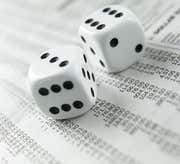 Personal Finance
Personal Finance5 Ways to Fund a College Education
You can go to college without going broke, but it may take an unconventional approach. -
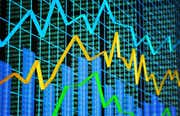 Taxes
TaxesInside the Hedge Fund Infatuation with Charter Schools
Find out why the federal tax credits available for investing in charter schools has lured dozens of hedge funds to the lucrative tax benefits available. -
 Insights
InsightsWhat is the Quantity Theory of Money?
Take a look at the tenets, assumptions and challenges of monetarism's principal theory, the quantity theory of money. -
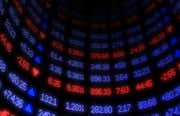 Insights
InsightsThe History of Economic Thought
Economics is a vital part of every day life. Discover the major players who shaped its development. -
 Investing
InvestingHow 5 Influential Economists Changed Americas History
Find out how five economists made contributions to financial theory that crossed over into many aspects of social history in America such as Adam Smith. -
 Insights
InsightsTop European MBA Programs: The Short List
The London Business School is currently ranked second best in the world right after Harvard Business School. These European business schools also offer outstanding MBA programs.



